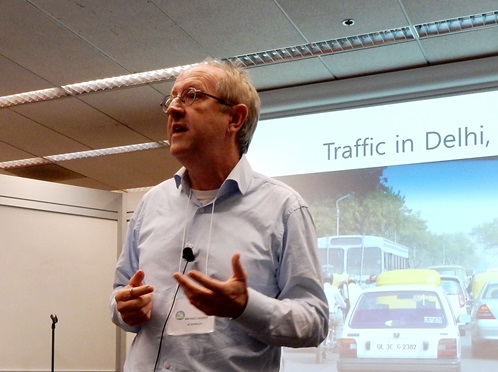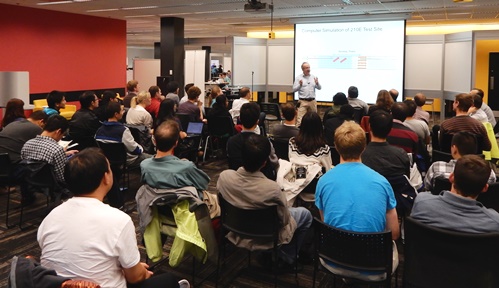-
November 20, 2014
PacTrans Regional Transportation Seminar: Dr. Michael Cassidy from UC Berkeley
Dr. Michael Cassidy is Chancellor’s Professor of Civil and Environmental Engineering at UC Berkeley, and Director of the University of California Center on Economic Competitiveness in Transportation.
PacTrans hosted Dr. Michael Cassidy of UC Berkeley, professor and director of the Region 9 University Transportation Center funded by US Department of Transportation, on November 5 for his lecture entitled “Lessons Learned from Spatiotemporal Studies of Freeway Carpool Lanes.” (Watch the recorded seminar here).
Virtually all cities of the world are plagued by cross-modal conflicts on roadways. Our best hope to make cities more sustainable, explained Dr. Michael Cassidy, will be to tackle the low-hanging fruit of segregating distinct travel modes on roadways into their own reserved lanes. While bus lanes and carpool lanes are not new, Dr. Cassidy looked at freeway carpool lanes as case studies to examine how reserved lanes can be used to segregate distinct travel modes in ways that are Pareto improving, and mistakes made in practice that can diminish the effectiveness of reserved lanes.
Freeway carpool lanes are often met with controversy, as concerns exist that underuse of such lanes can lead to congestion. To truly understand the impact of underused carpool lanes on congestion, Dr. Cassidy asserted that spatiotemporal data must be analyzed. Spatiotemporal study shows that a continuous-access carpool lane triggers reductions in vehicle lane-changing maneuvers, and the reduced lane-changing can “smooth” and increase bottleneck discharge flows in a freeway’s regular lanes. Even underused carpool lanes can decrease both the people-hours and the vehicle-hours traveled by smoothing cross-modal conflicts.
Dr. Cassidy also demonstrated how certain practices, due to the friction effect, can degrade the effectiveness of carpool lanes. Citing a California policy to improve carpool-lane speeds, spatiotemporal traffic data demonstrated that the mandate to evict certain hybrid vehicles from carpool lanes caused expanded queues in regular lanes during the rush. This, in turn, slowed vehicles in adjacent carpool lanes.
Watch the full seminar.




